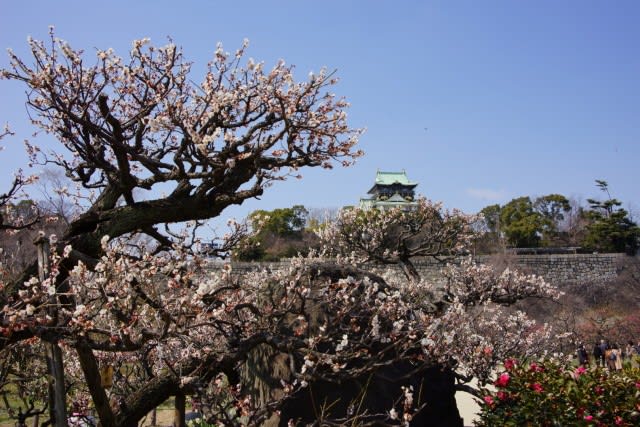The following is from an article by Tadae Takubo, professor emeritus at Kyorin University, titled "Jittery diplomacy without a national army" in "Sound Argument," a monthly magazine on sale now with a special feature Japanese people must get out of taking peace for granted.
The emphasis in the text other than the headline is mine.
It is a must-read for the Japanese people and people worldwide.
This paper is the correct theory among the suitable approaches.
Tadae Takubo wrote his whole being paper as a true patriot.
It is a paper that all Japanese citizens should go to their nearest bookstore to subscribe to immediately.
I sincerely hope that my chapter will reach as many Japanese citizens as possible.
I am confident that my translations into other languages will reach the heart of each country.
It is one of the best articles of the 21st century.
You can talk big all you want, but a nation that depends on the U.S. for the basis of its military power is a nation with one lung.
The "light armament and emphasis on the economy" that the Koikekai group led during Japan's high-growth period ultimately shaped the country into what it is today.
The nation consults the U.S. on issues that affect the nation's fate, such as diplomacy and defense. Politicians from both the ruling and opposition parties parrot "strengthening the Japan-U.S. alliance" and "strengthening the deterrent force against China.
Specifically, there is no way to do anything other than increasing defense spending to the extent that it is unclear how effective this will deter China.
There is no other option but the "Japan-U.S. alliance" to decide Japan's fate.
For the United States, which holds our power of life and death, we care about the complexion of the United States each time.
While the U.S. was intervening militarily in Afghanistan and then Iraq, China attempted to change the status quo through force, expanding into the South and East China Seas and making unsettling moves on the border with India.
As Japan occupies a geopolitical position, a kind of fear of causing trouble with this China is likely at work.
China's maneuvering against Japan may also be having an effect.
Japanese diplomacy has become nervous to the extreme.
I wonder if the Japanese government, fed up with South Korea's persistent accusations over the so-called comfort women, conscripts, and the gold mine issue on Sado Island is steadfastly prepared to do something about it.
North Korea has conducted seven missile launch tests this year through January 30.
If Japan were to conduct a missile test in front of its eyes that would put Japan in range, it would simply repeat empty "stern protests" and "violations of UN resolutions."
Japan has no choice but to continue its jittery diplomacy, even though it is right to be nervous about all the countries involved.
The Phantom "Condemnation of China" Resolution
On January 29, the day after it decided to nominate Sado Kinzan to the UNESCO World Heritage list, the local Niigata Nippo newspaper wrote the headline, "A Change of Course from the Consideration of Not Nominating the Sado Gold Mine," on its front page.
The surprise that "postponed" had been changed to "recommended," even though it was not expected, was evident.
The problem is the editorial.
The editorial was reluctant from the outset to address the difficulties that are naturally expected due to South Korea's opposition.
The editorial already expressed sympathy for the Korean side, saying, "We understand the Korean sentiment regarding forced labor, but the recommended Sado Gold Mine dates back to the Edo period.
As the Society for the Study of Issues Related to Historical Recognition (chaired by Tsutomu Nishioka) clearly states in an opinion ad in the same newspaper, 1,519 Korean laborers were mobilized at the Sado Gold Mine two-thirds of these, or 1,000, were "recruited" workers.
The other 500 traveled to Japan either through "government agents" or "conscripts," but these were legal wartime labor mobilizations, and there was no such thing as "forced labor," as the Koreans call it.
Prime Minister Fumio Kishida was initially cautious about the recommendation, but the issue was "reversed" after a "roundabout way," as the headline in the Niigata Nippo grudgingly put it.
Before that, the Japanese government had supposedly made a cabinet decision that "the wartime mobilization of Korean laborers does not constitute 'forced labor' under the Convention on Forced Labor.
It is said that the registration cannot be made as long as there is opposition from the countries concerned, but there is no reason why we should be concerned about any other "opposition" with other intentions.
At the same time, the House of Representatives finally passed the "Resolution on the Serious Human Rights Situation in Xinjiang Uighur and Other Regions" by a majority vote at a plenary session on February 1.
I will not recount the details of how the LDP's original draft ended up with a blurred focus as a result of lengthy adjustments, as reported by various mass media outlets.
However, although the lengthy resolution mentions serious human rights violations, including violations of religious freedom and forced imprisonment in Xinjiang, Tibet, Southern Mongolia, and Hong Kong, it leaves out the subject matter.
It simply states, "The international community has expressed its concern," and then goes on to explain more about the situation.
There is only one place with the subject.
"We recognize that the change in the status quo due to the power symbolized by the serious human rights situation is a threat to the international community, and strongly urge the international community to be accountable for the serious human rights situation. Ask"
It just states that.
Even though the resolution relies on the international community having condemned China by name, there is no "China" or "condemnation," which is the key to the solution.
It is equivalent to firing a gun into the darkness.
The original draft was revised by some pro-China members of the Liberal Democratic Party, who secretly and willingly accepted the unspoken consideration for China by the New Komeito Party.
Komeito has emphasized friendly relations with China since its formation in 1964, but has it considered what its actions mean today?
Japan has been threatened by the China Coast Guard's public vessels that have appeared in the Senkaku Islands since 2012.
The United States, an ally, has entered into a total conflict with China. The premise of democratic countries such as the United States and Europe, including suppressing human rights, has been trampled.
The resolution itself, which tells us that the U.S. is secretly communicating with China, while placing itself in the free world, might not be questioned by the international community, which respects freedom, human rights, and the rule of law.
Cowardice is sometimes necessary for diplomacy, but we must beware of becoming cowardly.
National defense is the executive branch.
The root cause of Japan's jittery diplomacy in the face of the United States, China, Russia, South Korea, and North Korea is that Japan has a different character from these countries.
If one were to ask what the difference is, it is impossible not to answer that Japan does not have a national military force, which, along with diplomacy, should be two wheels of a cart.
It is a pity for the Self-Defense Forces, which are among the most powerful globally, but their postwar history has been a thorny road without any justification.
To put it bluntly, Japan has not given the SDF a place in the nation's military.
Rikio Shikama, a diplomat by training and a leading expert on defense affairs and international law, has long argued this point in his book "National Defense and International Law" (Good Books, Inc.).
Although national defense, which should be the embodiment of sovereignty in any nation, is the fourth power along with the legislative, judicial, and executive branches, the Self-Defense Forces belong to the executive branch.
Its origins date back to the Police Reserve Corps, formed immediately after the Korean War in 1950 to maintain public order and defense.
Two years later, the Police Reserve Corps became the Security Forces, with national defense as its primary duty and police as its secondary duty, and in 1954 it became the Self-Defense Forces.
Since the legal system to be followed is the police legal system, the so-called "positive list" requires the police to follow the law every time.
In other words, national defense, which should be a national institution, has become an administrative institution.
No politician will be outraged if there is any other country like this.
Mr. Shikama lists three differences between the military and the police.
As noted to the right, the first is that the military is an autonomous professional group that maintains a certain distance from the authority of the time. At the same time, the police is an administrative body and are, therefore, the government itself.
The second is a fundamental difference in the way authority is defined.
The police have a positive list of powers, while the military has a negative list of management, in that they are free to act as they please as long as they do not fall under the list of prohibited actions.
Third, while the police are engaged in work within the realm of the state, the military directs its functions to other countries for national defense.
How much effort has been expended to make the SDF what it is today, a de facto military force, under the strict framework of the police legal system under the current Constitution?
If the entire nation does not reflect on this and remove the obstacles to the SDF as soon as possible, it will only be underestimated by foreign countries.
I say this because I happened to be in the same year as the first and second students of the National Defense University and had some friends with them. Still, I can tell you how many Japanese proudly called themselves "tax cheats" and other such disrespectful terms during their student or active duty years.
In 1978, before it enacted the contingency legislation, Hiroomi Kurisu, then chairman of the Joint Staff Office, simply said, "If a third country attacks, the Self-Defense Forces will have to flee or take extrajudicial measures." At that time, Shin Kanemaru, the Secretary of the Defense Agency, dismissed Mr. Kurisu.
The strong, calm Mr. Kurisu stated that he was resigning because his views did not agree with the Secretary of Defense.
Public opinion and the LDP chorused "civilian control," and section chief of the Internal Bureau put his foot on his desk and said gleefully, "I was the one who cut Kurisu.
There was little public criticism of this.
An excellent example of "civilian control" was the dismissal of General MacArthur in 1951.
General MacArthur, nominated as a presidential candidate and had tremendous authority, advocated total victory and clashed with President Truman, who wanted to keep the war on the Korean Peninsula.
The President dismissed the General following civilian control.
The Chairman of the Joint Staff Office, Kurisu, is a member of the Joint Staff Office and has only stated the truth.
How much authority did Mr. Kurisu have compared to MacArthur?
It was 25 years after this incident that the emergency law was enacted.
Who is it that has been hurting the Self-Defense Forces so much by comparing them to a prewar army and making noises about violations of civilian control and "exclusive defense"?
It is said that the control of the SDF by the Defense Agency's internal bureaus, which was at one time terrible, has been largely corrected.
However, suppose Japan does not bring its political-military relations on par with other countries. In that case, it will continue to be in the miserable situation of being made a "make light of" by neighboring countries.
Outdated Economy-First Principle
Although it is too late to dwell on it now, the emphasis on the economy and the national aversion to the military are probably the main reasons for today's jittery diplomacy.
After reading Prime Minister Kishida's two books, "Kishida Vision: From Division to Cooperation" and "A World Without Nuclear Weapons: The Aspirations of a Courageous Peaceful Nation," I was surprised to find the similarity with "Gendai to Senryaku" (Modern Times and Strategy) written by Yonosuke Nagai, a professor at the Tokyo Institute of Technology in 1985.
In Nagai's opinion, the emphasis on the economy and avoidance of the military leads halfway inevitably toward a "lightly armed, economically powerful nation.
In the high-growth era, during the Cold War between the United States and the Soviet Union, we have been immersing ourselves in the nuclear umbrella of the United States and advocating pacifism.
It was an era when the internal subdivision was keeping an eye on the SDF, which was in charge of defense rather than its own country.
It was a time when the Self-Defense Forces seemed to be the "enemy" of Japan rather than how to deal with foreign enemies.
Although it seems to have almost disappeared by now, the vice-ministers and chief cabinet secretaries of the Defense Agency were all seconded from the former Ministry of Home Affairs, the National Police Agency, the Ministry of Finance, and the Ministry of Foreign Affairs.
A human who will return to his office in a few years cannot be dying for defense.
Professor Nagai explains what the feelings of the government and the people were.
"If Japan had embarked on its military industry and arms exports in 1951 under the auspices of the U.S. Mutual Assistance Agreement (MSA), the economic miracle of today would not have been possible. The mainline conservative economic rationalism of Yoshida-Ikeda-Miyazawa and the balanced budget policy of the Ministry of Finance and the mainstream business community, especially the banking and financial circles, were responsible for holding back this sweet temptation at the water's edge and were supported by the Socialist Party and other opposition forces, and above all by the anti-military and pacifist sentiment of the people. It can say that all of these were rooted in the self-experience and wisdom of the people who were defeated by the blood and tears."
In the heyday of money, money, money, I interviewed people in the business world for a magazine project. Both Yoshishige Ashihara of the Kansai Zaikai and Takeshi Sakurada of the Tokyo Zaikai said, "Now is the time to think about increasing military power in a time of peace. I will think of the funds myself," they said boldly.
Economic emphasis may be revived as a new "Yoshida Doctrine" that should have become a ghost under the Kishida administration.
We should not underestimate the global trend that has increased the likelihood of war among the major powers.
Enhancing national defense is not simply a matter of increasing the budget.
Instead, it is more a matter of repeating the empty phrase "strengthening the Japan-U.S. alliance," and there is a sense that Japan as a whole has fallen into a kind of mannerism that takes its dependence on the U.S. for granted.
Deep down, the Japanese people are confident that if push comes to shove, the U.S., with its Japan-U.S. alliance, will do something about it.
When it comes to the Senkaku Islands, they simply beg the U.S. to apply Article 5 of the Japan-U.S. Security Treaty.
When the U.S. withdrew from Afghanistan last year, President Biden made it clear that he had no use for a country that had no intention of defending itself.
How can Japan be considered an exception?
When the Republicans win the presidential election in two years, and former President Trump or someone with similar views comes to the White House, we must be prepared for him to say that the Japan-U.S. security relationship is too one-sided.
If the U.S. pulls out even a portion of its troops in Japan, some forces may turn blue and try to cry to China.
I recall quite a few of my acquaintances who are former employees of the Ministry of Foreign Affairs (MOFA) who proudly proclaimed during the era of rapid economic growth that "The future is the era of diplomacy" by Shigeru Yoshida right after the defeat of Japan.
If he really said that, Yoshida was not as clever a politician as his popular reputation suggests.
The military is an extension of politics, not to mention Clausewitz, and military and diplomacy are two wheels of a car for the nation.
Suppose Japan does not correct its current deformity by building an army that is not ashamed of being a nation, abandoning the delusion of the "Yoshida Doctrine" of an economy-first policy, and creating a well-balanced nation. In that case, its jittery diplomacy will continue unabated.
If we do not correct the current deformity by creating a balanced nation, our jittery diplomacy will continue unabated.
The fact that not a few LDP lawmakers are highly reluctant to discuss the revision of the Constitution before the Upper House election clearly shows that they are not seriously engaged in the revision of the Constitution.
We sincerely await the arrival of politicians with an eye on the times.
There must be a Winston Churchill in Japan.


















